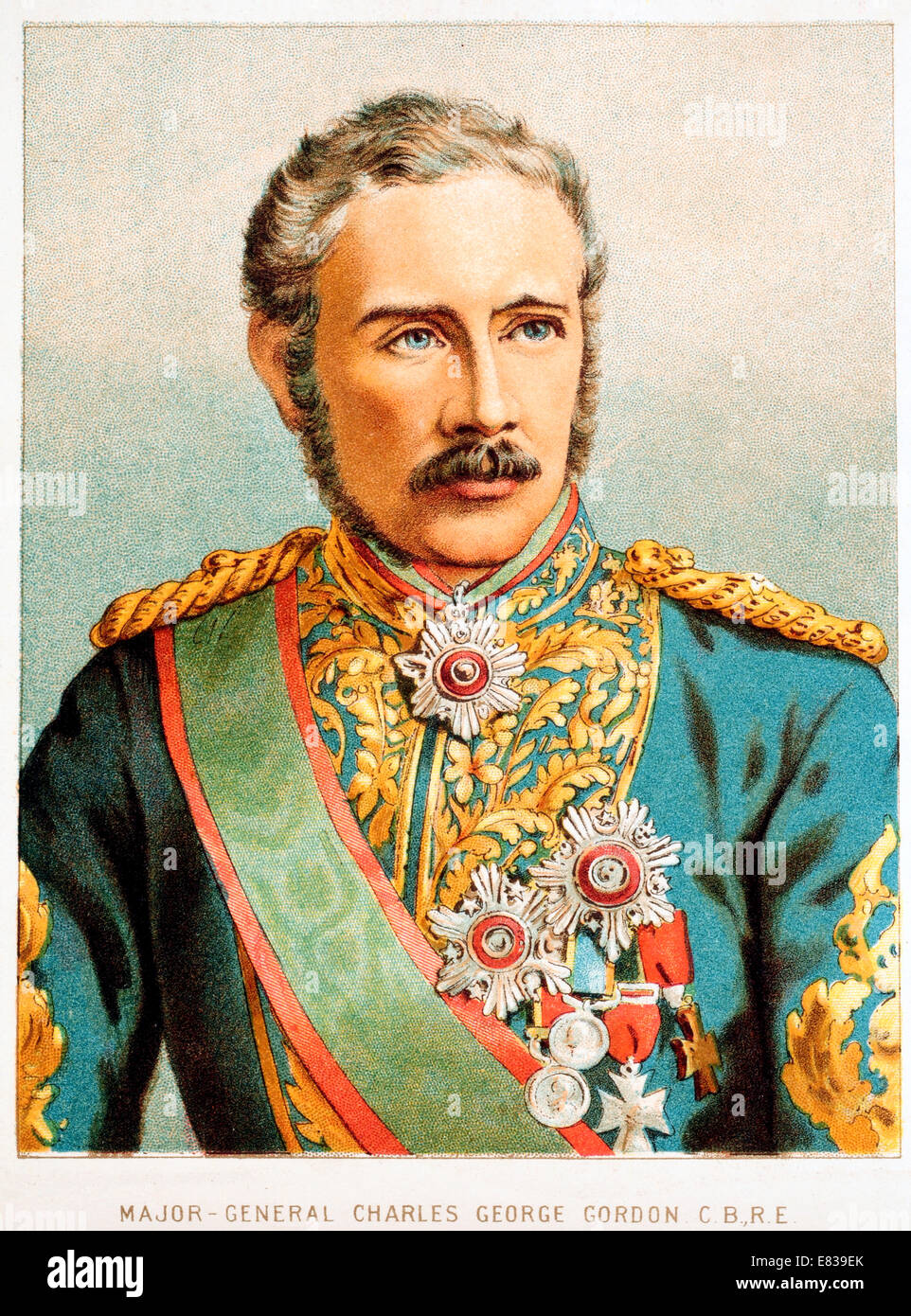Lithograph Major General Charles George Gordon C B R E

Image details
Contributor:
19th era / Alamy Stock PhotoImage ID:
E839EKFile size:
31.4 MB (2.6 MB Compressed download)Releases:
Model - no | Property - noDo I need a release?Dimensions:
2848 x 3848 px | 24.1 x 32.6 cm | 9.5 x 12.8 inches | 300dpiDate taken:
26 September 2014More information:
Major-General Charles George Gordon, CB (28 January 1833 – 26 January 1885), also known as Chinese Gordon, Gordon Pasha, and Gordon of Khartoum, was a British army officer and administrator. He saw action in the Crimean War as an officer in the British Army. For this service he was appointed a Chevalier of the Legion of Honour by the Government of France on 16 July 1856.[1][2] But he made his military reputation in China, where he was placed in command of the "Ever Victorious Army, " a force of Chinese soldiers led by European officers. In the early 1860s, Gordon and his men were instrumental in putting down the Taiping Rebellion, regularly defeating much larger forces. For these accomplishments, he was given the nickname "Chinese" Gordon and honours from both the Emperor of China and the British. He entered the service of the Khedive in 1873 (with British government approval) and later became the Governor-General of the Sudan, where he did much to suppress revolts and the slave trade. Exhausted, he resigned and returned to Europe in 1880. A serious revolt then broke out in the Sudan, led by a Muslim reformer and self-proclaimed Mahdi, Muhammad Ahmad. Gordon was sent to Khartoum with instructions to secure the evacuation of loyal soldiers and civilians, and depart with them. After evacuating about 2, 500 British civilians he retained a smaller group of soldiers and non-military men. In the buildup to battle, the two leaders corresponded, each attempting to convert the other to his faith, but neither would accede. Besieged by the Mahdi's forces, Gordon organized a city-wide defence lasting almost a year that gained him the admiration of the British public, but not the government, which had not wished to become entrenched (as Gordon was instructed before setting out). Only when public pressure to act had become too great did the government reluctantly send a relief force. It arrived two days after the city had fallen and Gordon had been killed.